
What kind of innovations should Uganda adopt to empower women in order to achieve inclusiveness and sustainable development? In your view, what is the most significant achievement of the women empowerment initiatives and gender equality campaigns?
Daisy Owomugasho – Executive Director The Hunger project Uganda
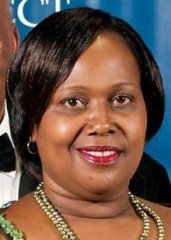
As a country, we must adopt a rights-based approach to development and economic transformation that places people and more especially women at the center. We must narrow the divide between men and women if we are to achieve the World we want by 2030. We must invest in protecting our children, especially our girls and all societies must respect women and their ability to contribute to the well-being of families, communities and the country at large.
In my view the biggest achievement has been the clear demonstration by women that we can actually be great leaders, we can become successful entrepreneurs and we can ably contribute to national development just like our male counterparts
Nataliey Bitature – Chief of Staff, Simba Group
 From a policy standpoint I think companies should have the mandate to hire more women in managerial and executive positions; like we have Women MPs to encourage more women to run for political office. We need women in formalised entrepreneurship and working in the private sector. Big barrier women face is an opportunity. By simply having to interview more women companies will hire more women.
From a policy standpoint I think companies should have the mandate to hire more women in managerial and executive positions; like we have Women MPs to encourage more women to run for political office. We need women in formalised entrepreneurship and working in the private sector. Big barrier women face is an opportunity. By simply having to interview more women companies will hire more women.
I think it is impressive how many women training programmes are being executed across the country. Women, especially in rural areas need focused skills training
Susan Opok Tumusiime – Executive Director FAWEU
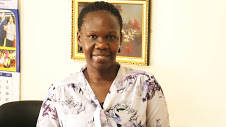
With regard to the innovations, I think the initiation of policies that relay to gender equality and women’s empowerment are good starting points for society to include and support women. This in itself is however inadequate and requires implementation in order for activities and opportunities available to be undertaken. There should be deliberate effort to garner support for negative norms and practices that harm women, support the different efforts to prevent abuse and violence and give the women rights as individuals and as humans.
Women should not only be counted as numbers, rather, they need support to be part of gainful processes, their voices being heard. Women should also challenge themselves to support each other in the spirit of sisterhood. They should know why they are and what they stand for and support the cause for which they stand.
The saying, together we stand, divided we fall should be a catchphrase for us as women!!
The greatest achievement for us as women is the opening up of space and this is literal. Many women, girls’ voices can be identified due to affirmative action, however, despite the voices, the impact and presence of women still leaves a lot to be desired. This implies that numbers on their own cannot fully empower women. We need them to be able to act, own property, stand and sustain themselve
Hon Pamela – UWOPA Chairperson
Women need to access finances. My experience across the rural Budaka is that women have been excluded from financial resources, one of the empowerment tools for women empowerment is to access finance.
We can train women, we can sensitise the community about women empowerment but both men and women need resources.
Evidence from rural areas, for example, suggests that women SACCOS are playing a big job in women financial inclusion and not only helps women but empowering women thru financial inclusion and again you realise that this financial inclusion not only helps women but empowering women through financial resources has a big multiplier effect in the entire family.
In my view, UWEP funds and the recent Presidential initiative of Skilling the Youth have contributed a lot to women empowerment. Many families have improved because of the income they realise on getting these loans and the skills acquired during the training improve their livelihoods and their saving culture.
Dr. Betty Nnanyonga – Senior Lecturer, Dept of Mathematics, Makerere University
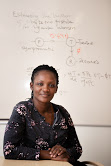
In order to achieve inclusiveness and sustainable development, women should be linked to the development agenda. Efforts to advance women and initiatives to promote sustainable economic growth should be mutually reinforced. Women should be the primary contributors to the country’s economic growth. Feminisation of poverty should be reversed and strategies to improve women’s education, health and empowerment embarked on. Overall, collective efforts should be aimed to both protect the rights of, and promote opportunities for, women throughout the economic and social development process. Women should be encouraged to take on leadership roles, as evidence suggests that a more gender-inclusive system may lead to better policies for women and girls. This also enforces the crucial role of women in development and highlights the need for their participation in decision-making processes to ensure sustainable development. Gender equity is not only a fundamental human right, but a pre-condition for sustainable development. Women and girls should be provided with quality education, health care, decent work, access and ownership rights over property and technology, and equal participation in political and economic decision-making processes. This will lead to social, economic and environmental sustainability across the country.
The most significant achievement of women empowerment initiatives and gender equality campaigns has led to the advancement of international cooperation, and more women have shown interest to participate in both the public and the private sector. Although more women have been educated, the overall education rates are no longer the source of the concern, but specific concentrations in crucial careers and workforce are still the problem. Increasing women’s participation in research will have significant positive effects. It is not just research and innovation by women, but for women, that is lacking.
Prof Grace Kibanja
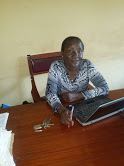
As a country, we must adopt a rights-based approach to development and economic transformation that places people and more especially women at the centre. We must narrow the divide between men and women if we are to achieve the world we want by 2030. We must invest in protecting our children, especially our girls and all societies must respect women and their ability to contribute to the well-being of families, communities and the country at large.
In my view the biggest achievement has been the clear demonstration by women that we can actually be great leaders, we can become successful entrepreneurs and we can ably contribute to national development just like our male counterparts.
Rev Canon Diana Mirembe Nkesiga – St. Francis Chapel, Makerere University
Ugandan society must simply stop inhibiting women reaching their God-given potential by removing the roadblocks that hinder women from making a progressive contribution at all levels. Cultural stereotypes that demean the woman’s place and contribution like the culture of non-inheritance for women and wife inheritance. We need to care-front these issues like the five daughters of Zelophehad in Numbers 26 & 27 who confronted Moses and Eleazar and the policy of non-inheritance was changed to include daughters.
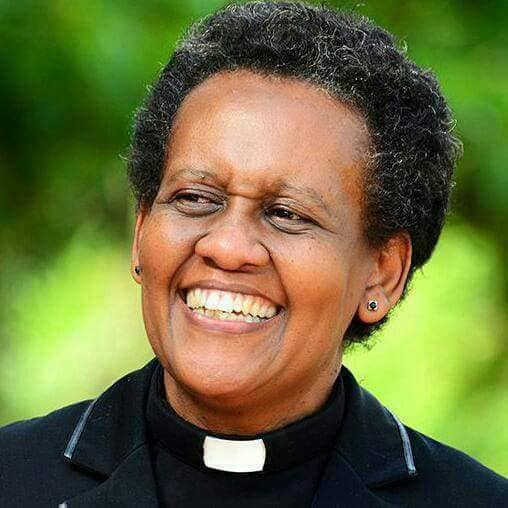
A culture that makes the female economically reliant on the mercy of the males is disempowering and creates poverty, oppression and denies the nation progress, creativity and development.
Women need equal access to education and to financial resources but also equal rights to respect, dignity and value in the field of leadership.
For me change of mindset is key. The government cannot simply lay down policy and a quarter system they need to invest in the training for wealth creation and should partner with all religious institutions to address the present day gender theology that continues to displace women in God’s plan using the cultural context of the day in preference to God’s restorative plan.
The introduction of gender studies has transformed the mindsets of both men and women but if this is done in isolation of our faith it will continue to be rejected and labelled liberal and feminist which are negative words to many faith institutions.
Provia Nangobi: Senior Public Relations Officer at Uganda Registration Services Bureau (URSB)
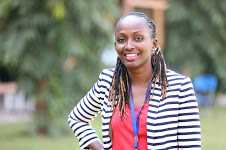
Women are already empowered given the opportunities that present themselves to females. We have had women appointed at the highest level of leadership, Winnie Byanyima, Betty Bigombe, Victoria Ssekitoleko, Allen Kagina, Jennifer Musisi, Obitre Gama of NIRA, Doris Akol etc women excelling in the private sector and sports. The most important thing is finding your niche and doing something you are passionate about. For women, the sky is the destination and they can excel in all spheres of life from ICT, Banking, Transport and Industry, Manufacturing, Education etc
Women empowerment and gender equality initiatives gave women a platform to believe in themselves and enter markets that were initially male dominant.
Agwang T. Aidah – Communications professional.
On a national level Government should create more opportunities for women to head ministries and not just as Ministers of state but as full ministers of key Ministries. Government has come a long way in trying to bridge the gender divide and should be commended for this. However, more needs to be done. At the organizational level, women should be mentored to not only head national, regional and international organizations but to also sit on the boards of these organizations. The time has come for Ugandan women to show up, sit at the table and represent. If this representation means bringing the feminine style of doing things i.e influencing, so be it. The time is now. Early in my career, I was lucky enough to be mentored by the CEO of an organization and some of the things she taught me have paved the way for so many of the opportunities I have seized and as a result contributed tremendously to both my professional and personal growth. We are now playing on a level field and it is time Ugandan women leveraged their skills, talent and expertise to seize opportunities on a global level. otherwise, run the risk of being left behind. Mentoring programs by fellow women at all career levels I strongly believe will make the much-needed difference. On a personal level Ugandan woman should deliberately and continuously pursue professional development in this dynamic era and focus on upgrading themselves. In this internet era where there are numerous opportunities online, we have no excuse. Over the years I have learned to seize these opportunities to study online which has advanced my career and most of these opportunities have been free. With the rapid advancements in technology, the world bank predicts that in 5 years’ time some jobs will be non-existent thanks to technological advancements, jobs mostly done by women. Think on that.

An emerging group of empowered women who are leading organizations, causes and pushing for real change in different areas and sectors. A new breed of women and role models for the younger generations to look up to. Women like Doris Akol-URA, Allen Kagina, Jennifer Musisi who successfully moved on to bigger things. They are great role models to the young Ugandan women. They change the narrative from slay queens to real high value, high achieving women.





